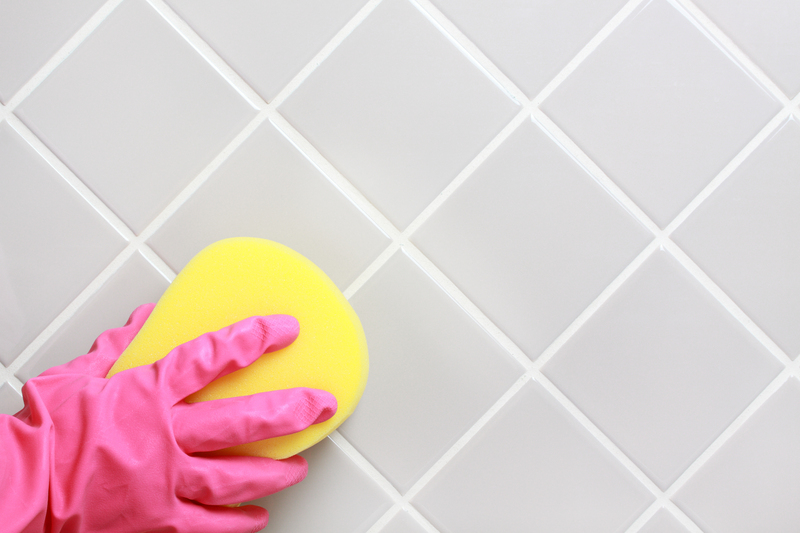Restoring Glory: Top Picks for Jewellery Cleaning Methods
Posted on 23/08/2025
Restoring Glory: Top Picks for Jewellery Cleaning Methods
Your jewellery is more than an accessory; it is an expression of personal style, a symbol of memories, and sometimes an heirloom passed through generations. However, no matter how cherished, even the most precious jewels can lose their brilliance over time due to dust, oils, and everyday wear. Keeping your collection sparkling is easier than you think! In this comprehensive guide to jewellery cleaning methods, we explore expert-recommended techniques, do's and don'ts, and pro tips to help you restore the glory of your favourite pieces.

Why Jewellery Loses Its Shine (and How to Bring it Back)
Jewellery tarnishes and dulls for several reasons. Everyday factors such as exposure to air, moisture, sweat, household chemicals, and cosmetic products can cause metals to oxidize and gemstones to lose their lustre. Dirt and grime gradually build up in crevices, making intricate pieces especially prone to dullness. Knowing how to clean your jewellery effectively not only revives its appearance but also helps prolong its life.
- Gold can become dull from lotions and oils.
- Silver easily tarnishes in humid or polluted environments.
- Gemstones can accumulate dust and lose their sparkle.
- Pearls are sensitive to acids and require special care.
Choosing the Right Jewellery Cleaning Methods
With a wide array of cleaning products and DIY solutions, picking the appropriate method depends on your jewellery type, design complexity, and materials used. Some pieces may benefit from at-home care, while others require professional attention. Let's delve into the best jewellery cleaning methods to ensure each item receives the right treatment without risk of damage.
Top Jewellery Cleaning Methods for Every Collection
1. Gentle Soap and Warm Water
This tried-and-true method works wonders for gold, platinum, diamonds, and certain gemstones (excluding porous stones like opal and pearls). Follow these steps for a radiant finish:
- Fill a bowl with lukewarm water and a few drops of mild dish soap.
- Soak your jewellery for 15-20 minutes.
- Brush gently with a soft, clean toothbrush to dislodge grime.
- Rinse well under running water.
- Dry thoroughly with a lint-free cloth.
Tip: Always plug the sink before cleaning delicate items to prevent accidental loss!
2. Ultrasonic Jewellery Cleaners
Ultrasonic cleaners use high-frequency sound waves to create minute bubbles that remove dirt and debris from hard-to-reach nooks. They are a popular choice for restoring the brilliance of intricate settings.
- Pros: Deep cleans even the most detailed jewellery designs in minutes.
- Cons: Not suitable for soft, porous, or treated gemstones like pearls, opals, emeralds, or items with loose settings.
How to Use:
- Fill the tank with cleaning solution or warm water with a hint of mild soap.
- Place your jewellery in the basket and set the timer (usually 3-5 minutes).
- Remove and rinse thoroughly; dry gently.
3. Commercial Jewellery Cleaning Solutions
There are various types of jewellery cleaners available in stores, formulated for specific metals and stones. Always read instructions to ensure compatibility with your pieces. Popular formulations include:
- Foam and liquid dips: For quick cleaning of diamonds, gold, and platinum.
- Silver polishing cloths and creams: Remove black tarnish from silver items.
- Jewellery wipes: Ideal for travel and light touch-ups.
Warning: Never use silver dips on pearls or stones. Avoid harsh chemicals like bleach or ammonia unless specifically recommended for your type of jewellery.
4. DIY Natural Jewellery Cleaning Methods
If you prefer eco-friendly and gentle alternatives, several household items can be used for safe jewellery cleaning:
- Baking soda paste (for silver): Mix a small amount of baking soda with water, rub gently with a cloth or sponge, and rinse.
- White vinegar (for diamond rings): Soak for 10-15 minutes, then scrub gently if needed.
- Olive oil and lemon juice (for gold): Mix one part lemon juice with one part olive oil, dip a cloth, and polish gently.
Note: Homemade solutions may not suit all jewellery types. Always test on a small area and avoid abrasive materials.
5. Professional Jewellery Cleaning Services
Some treasures are too valuable or delicate for home cleaning, and professional jewellery cleaning is the safest bet. Jewellers use specialized ultrasonic machines, steam cleaners, and expert polishing to restore the glory of your most precious items.
- Recommended for antique, fragile, or high-value pieces.
- Ideal for items set with emeralds, opals, tanzanite, or pearls.
- Professional inspection can catch loose stones or worn prongs before you notice.
Special Care for Precious Materials
Gold and Platinum Cleaning Methods
- Routine cleaning: Use warm soapy water and a soft brush.
- Polishing cloth: Buff to a high shine between deeper cleans.
- Avoid abrasives: Even sturdy metals can scratch under excessive pressure.
Caring for Silver: Preventing and Removing Tarnish
Silver is prone to oxidation, which results in a darkened, blackish appearance. To keep silver sparkling:
- Store in an anti-tarnish bag or cloth.
- Clean with a silver polishing cloth or appropriate cream.
- For engraved or filigree designs, consider a professional silver cleaning service.
Gemstone Jewellery Cleaning
- Diamonds, sapphires, rubies: Soak in soapy water, brush gently.
- Emeralds, opals, turquoise, pearls: Never soak. Wipe gently with a damp, soft cloth.
- Ultrasonic cleaners are not recommended for porous or treated stones!
Cleaning Pearls: Handle With Care
Pearls are organic and highly sensitive to acids, moisture, and rough handling. For optimum pearl jewellery cleaning:
- Wipe gently after each wear with a soft, dry cloth.
- Clean rarely, using a slightly damp cloth; avoid soap, chemicals, and soaking.
- Restring with silk every few years to ensure durability.
Common Mistakes to Avoid During Jewellery Restoration
- Using toothpaste or baking soda on soft gemstones: These substances can scratch pearls, opals, and other delicate stones.
- Soaking items with glued settings: Water can loosen glue securing stones.
- Mixing different metal types in cleaning solutions: Some cleaning agents can react and cause unwanted discoloration.
- Excessive scrubbing: Always use a soft-bristled brush and light pressure.
- Neglecting to dry properly: Moisture can lead to tarnish or mildew, especially in intricate settings.
The Importance of Regular Jewellery Maintenance
Maintaining your jewellery isn't just about keeping it beautiful--it also extends its lifespan and prevents loss or expensive repairs. Here's how to integrate jewellery care into your routine:
- Remove jewellery before swimming, cleaning, or exercising to prevent exposure to harsh chemicals and avoid accidental knocks.
- Store items separately in lined boxes or pouches to prevent scratching.
- Schedule annual professional inspections for valuable or frequently worn pieces.
When to Seek Professional Jewellery Cleaning
While at-home methods are suitable for routine maintenance, consider professional cleaning if:
- Your jewellery is vintage, intricately set, or holds significant monetary or sentimental value.
- You notice loose stones, damaged clasps, or excessive tarnish.
- You're unsure about the appropriate cleaning approach for a particular gem or setting.
Frequently Asked Questions: Jewellery Cleaning Tips and Tricks
How often should I clean my jewellery?
Clean pieces you wear daily, like engagement or wedding rings, every two weeks with gentle soapy water. Reserve deeper cleaning or professional care for once or twice a year.
Can I use vinegar or baking soda on all jewellery?
These household products are safe for solid gold and silver but can damage pearls, soft stones, or plated items. Stick to a dry cloth for more delicate or uncertain pieces.
What is the safest cleaning method for all types of jewellery?
A gentle wipe with a soft, lint-free cloth is safe for virtually any jewellery. For more effective cleaning, use specific methods based on your jewellery's material.
Is it safe to use an ultrasonic cleaner at home?
Only use if you are sure your stones and settings are compatible. Diamonds, rubies, and sapphires are generally safe, while emeralds, pearls, and other soft stones are not.

Conclusion: Restore Radiance with the Best Jewellery Cleaning Methods
Restoring your jewellery's lost glory is simple when you choose the right cleaning method for each piece. Whether you rely on gentle homemade solutions, commercial cleaners, or occasional professional care, consistency is key. Treat your treasures as the heirlooms they are--with the right care and attention, they will continue to shine and tell your story for generations to come.
Remember: When in doubt, always consult a professional before attempting to clean valuable or sentimental jewellery. Embrace these expert picks for jewellery cleaning methods and let your collection regain its original splendour!
Related Resources
- Expert Advice on Fine Jewellery Storage
- How to Clean Engagement Rings Safely at Home
- Top 10 Jewellery Maintenance Tips for Every Collection




